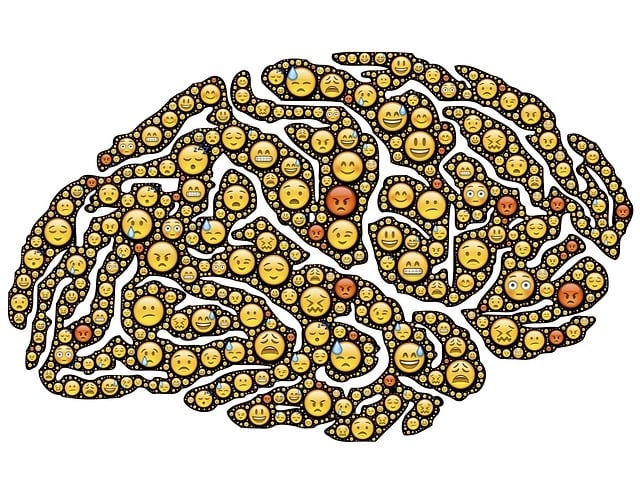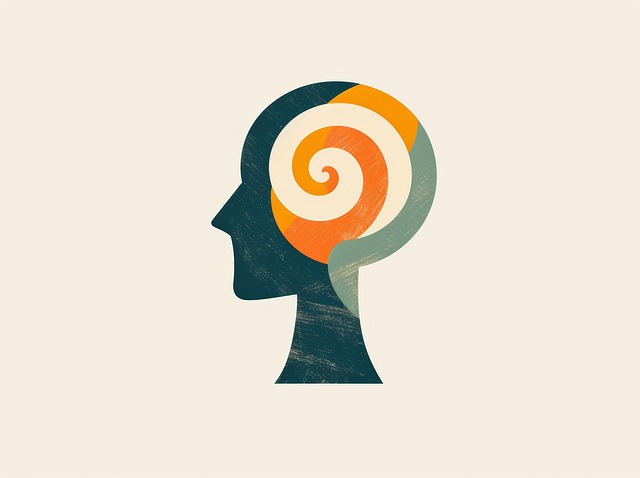Broomfield Biofeedback Therapy is an innovative approach to mood regulation that combines real-time physiological feedback, compassion cultivation, and mindfulness exercises. By teaching individuals to control their bodily responses to stress, this therapy enhances emotional resilience and stabilizes moods. With sensors tracking heart rate and skin conductance, users gain insights into the mind-body connection, enabling them to manage anxiety, improve overall well-being, and build inner strength. Integrating healthy habits and adopting a proactive mental health management strategy, as supported by Broomfield Biofeedback Therapy, leads to better stress reduction, improved quality of life, and reduced risks identified in professional risk assessments.
Mood regulation is a vital skill in today’s fast-paced world. Understanding how to maintain emotional balance can significantly enhance our overall well-being. This article explores various mood regulation strategies, from the foundational concepts to innovative techniques like Broomfield Biofeedback Therapy. We’ll delve into practical methods for daily management and uncover the long-term benefits of effective mood control, providing insights that could revolutionize your emotional journey.
- Understanding Mood Regulation: Unraveling Emotional Balance
- Broomfield Biofeedback Therapy: A Powerful Tool for Emotion Control
- Practical Strategies for Daily Mood Management
- The Science Behind Mood Regulation and Its Long-Term Benefits
Understanding Mood Regulation: Unraveling Emotional Balance

Understanding Mood Regulation involves recognizing that emotional balance is a delicate equilibrium. Our minds and bodies are intricately connected, and disruptions in this connection can lead to mood swings and emotional imbalances. Broomfield Biofeedback Therapy offers a powerful tool to unravel this complex interplay. By teaching individuals how to monitor and control physiological responses, it empowers them to manage stress and regulate their moods effectively.
In addition to biofeedback, Compassion Cultivation Practices and Self-Awareness Exercises play significant roles in mood regulation. These practices foster emotional resilience by encouraging individuals to cultivate empathy, mindfulness, and a deeper understanding of their feelings. Community Outreach Program Implementation can further enhance these efforts by providing support networks and shared experiences, reinforcing the importance of connection and compassion in maintaining mental health.
Broomfield Biofeedback Therapy: A Powerful Tool for Emotion Control

Broomfield Biofeedback Therapy is a highly effective strategy for individuals seeking to enhance their mood regulation abilities and foster inner strength development. This innovative approach leverages the power of real-time feedback from physiological signals, such as heart rate and skin conductance, to teach individuals how to consciously control their emotional responses. By participating in Broomfield Biofeedback sessions, folks gain a deeper understanding of the connection between their thoughts, feelings, and bodily sensations, enabling them to develop resilience building skills for managing stress and anxiety.
The process involves wearing sensors that monitor physiological changes during specific activities or relaxation exercises. This immediate feedback allows individuals to visualize and experience the impact of their emotional states on their bodies, providing a unique insight into their inner workings. Over time, with guided practice, individuals can learn to modulate their autonomic nervous system responses, promoting healthier stress management workshops organization and ultimately, improving overall well-being.
Practical Strategies for Daily Mood Management

In the pursuit of daily mood management, individuals can employ a range of practical strategies that offer significant benefits in their overall mental health and well-being. One effective approach is Broomfield Biofeedback Therapy, which enables people to gain control over their physiological responses to stress and emotions. By learning to regulate heart rate, muscle tension, and skin temperature, individuals can enhance their emotional healing processes and improve mood stability. This therapy provides a unique insight into the body’s reactions, empowering individuals to navigate and manage their mental health more proactively.
Additionally, fostering healthy habits such as regular exercise, adequate sleep, and mindfulness practices can go a long way in supporting daily mood regulation. Engaging in physical activity releases endorphins, known for promoting positive moods and reducing stress. Establishing consistent sleep patterns helps maintain emotional balance, while mindfulness exercises like meditation encourage individuals to stay present and cultivate a greater sense of self-awareness. Integrating these strategies into daily routines can be a powerful Mental Health Policy Analysis and Advocacy tool, as they empower individuals to take charge of their emotional well-being and mitigate potential risks, such as those outlined in Risk Assessment for Mental Health Professionals.
The Science Behind Mood Regulation and Its Long-Term Benefits

The science behind mood regulation is a fascinating field that explores how our minds and bodies interact to influence emotional states. Mood regulation strategies, such as Broomfield Biofeedback Therapy, tap into this intricate relationship to help individuals gain control over their emotions. By understanding physiological responses to stress and triggers, one can learn effective coping skills development, which in turn fosters improved mental health awareness and overall well-being.
Long-term benefits of implementing these strategies are profound. Enhanced emotional regulation enables better stress management, leading to reduced anxiety and depression symptoms. It empowers individuals to navigate life’s challenges more effectively, fostering resilience and a deeper sense of calm. This proactive approach not only improves quality of life but also serves as a robust foundation for maintaining mental health over time.
In conclusion, understanding mood regulation is key to achieving emotional balance. The article has explored various strategies, from comprehending the basics of mood control to practical daily management techniques. Notably, Broomfield Biofeedback Therapy emerges as a powerful tool for emotion control, backed by scientific research that highlights its long-term benefits. By integrating these insights into our lives, we can enhance overall well-being and navigate emotional challenges more effectively.














